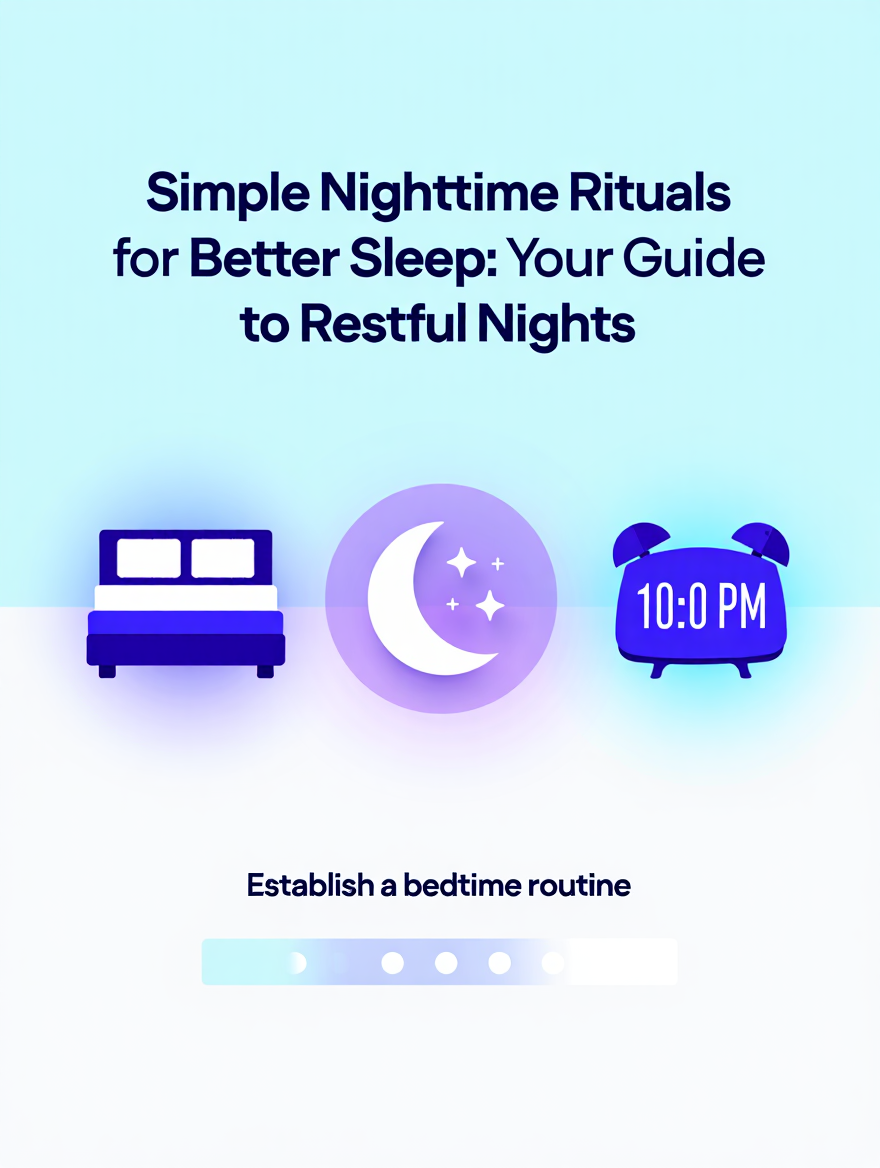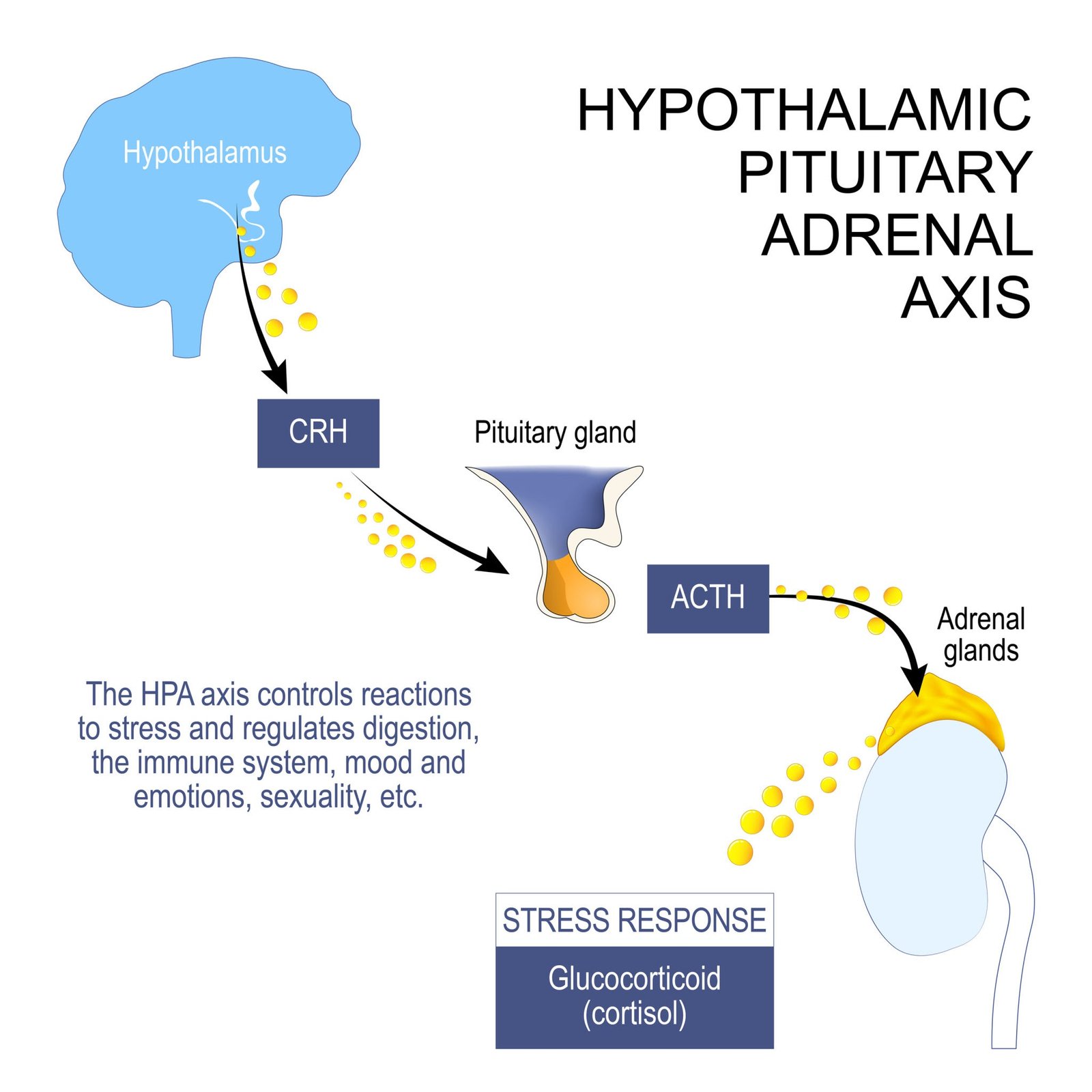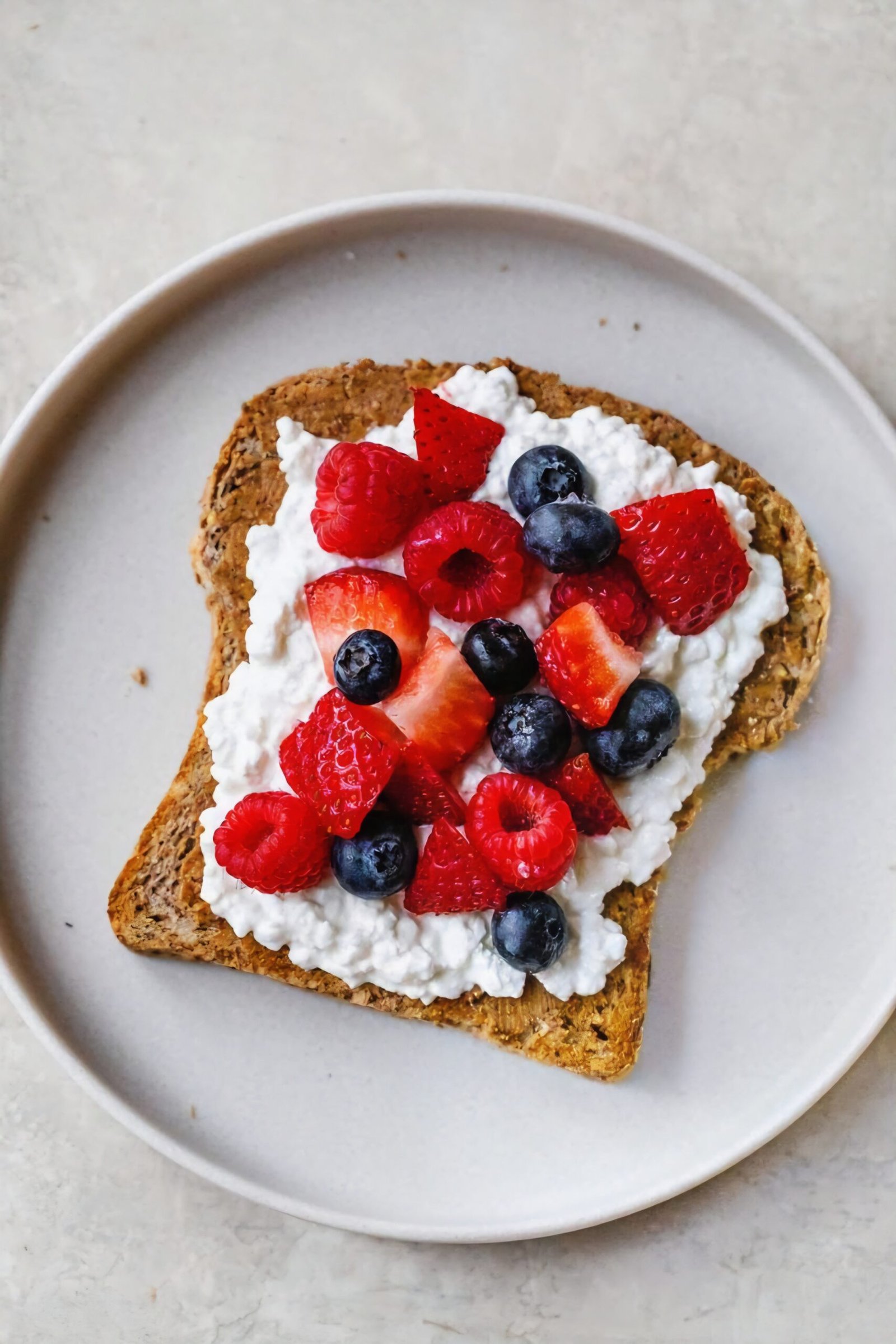Do you find yourself staring at the ceiling night after night, your mind racing while sleep remains elusive? If so, you’re certainly not alone. Research shows that more than one-third of adults in the U.S. don’t get enough sleep, with significant percentages struggling to both fall asleep and stay asleep through the night .
Thank you for reading this post, don’t forget to subscribe!The consequences extend far beyond next-day fatigue—poor sleep can affect your emotional stability, physical health, and overall quality of life. The good news? Improving your sleep might be simpler than you think.
This guide will walk you through practical, science-backed nighttime rituals for better sleep that can help transform your rest. By understanding and implementing these straightforward practices, you can create an effective relaxing bedtime routine that signals to your body and mind that it’s time to wind down and embrace restorative sleep.
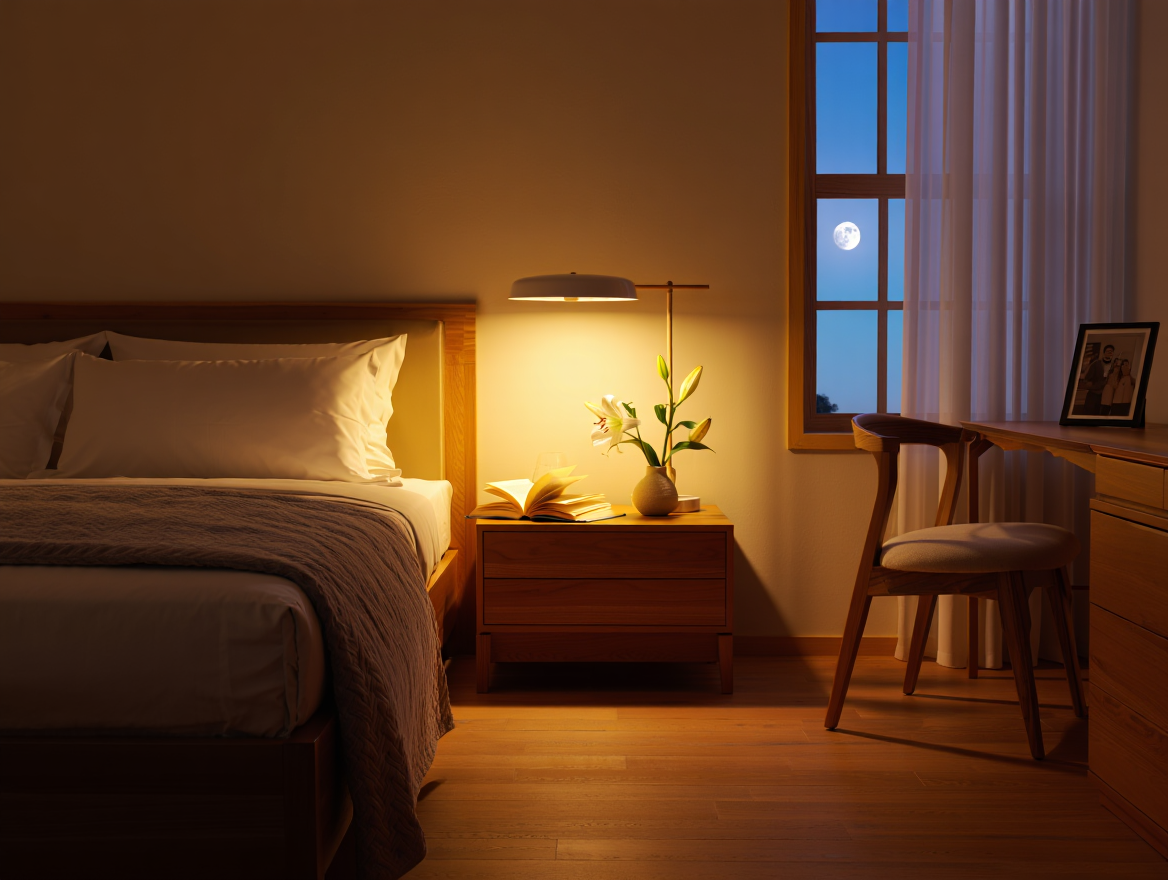
The Science of Sleep Hygiene (Why Rituals Matter)
Before diving into the specific rituals, it’s helpful to understand why they work. The concept of sleep hygiene refers to the habits, behaviors, and environmental factors that you can adjust to promote better sleep . Think of it as creating the ideal conditions for your body to do what it naturally wants to do—sleep well.
Understanding Your Circadian Rhythm
Your body operates on a roughly 24-hour internal cycle known as your circadian rhythm. This biological clock regulates feelings of sleepiness and wakefulness throughout the day, aligning itself with natural light patterns . When this rhythm is disrupted—by exposure to light at night, irregular bedtimes, or other factors—your sleep quality suffers significantly.
The Power of a Consistent Sleep Schedule
Perhaps the most crucial element of good sleep hygiene is maintaining consistency in your sleep patterns. A study from Duke Health found that adults with irregular sleep patterns weighed more, had higher blood sugar and blood pressure, and faced a higher projected risk of heart attack or stroke compared to those with consistent sleep schedules .
Table: Benefits of a Consistent Sleep Schedule
| Consistent Schedule Benefit | Impact on Health & Wellbeing |
|---|---|
| Regulated circadian rhythm | Easier time falling asleep and waking up naturally |
| Improved sleep quality | Deeper, more restorative sleep throughout the night |
| Better metabolic health | Lower risk of weight gain and blood sugar issues |
| Enhanced daytime function | Improved focus, energy, and mood |
This is why one of the most effective ways to improve sleep quality is to maintain a consistent sleep-wake time—even on weekends. If you need to adjust your schedule, do it gradually in 15-minute increments until you reach your ideal bedtime .
Three Core Pillars of a Relaxing Nighttime Ritual
Creating an effective bedtime routine doesn’t require dramatic changes. Instead, focus on these three core pillars that form the foundation of restful sleep.
1. Disconnect and Dim Down (The Electronic Fast)
In our hyper-connected world, this might be the most challenging yet impactful change you can make. Implement a 30-60 minute screen ban before bed as part of your relaxing bedtime routine.

The Negative Impact of Blue Light
Electronic devices including computers, televisions, smartphones, and tablets all emit strong blue light . This blue light floods your brain while using these devices, tricking it into thinking it’s daytime. As a result, your brain suppresses melatonin production—the hormone that helps you relax and sleep—and works to stay awake .
Beyond the light issue, the content you consume—whether work emails, social media, or exciting shows—can stimulate your brain when it should be calming down. This mental activation makes it difficult to transition into sleep mode.
Actionable tip: Create a designated charging station outside your bedroom. Instead of scrolling through your phone as your last activity, try reading a physical book or using a traditional alarm clock to eliminate the temptation.
2. Create a Tranquil Sleep Sanctuary
Your bedroom environment plays a crucial role in your ability to fall and stay asleep. Optimizing this space can significantly enhance your nighttime rituals for better sleep.
Temperature control: Most people sleep better in a room that’s slightly cool, ideally between 65 to 68 degrees Fahrenheit . Your body temperature naturally drops during sleep, and a cooler room supports this process.
Darkness optimization: Excess light exposure can throw off your sleep and circadian rhythm . Consider blackout curtains over your windows or a sleep mask over your eyes to block light and prevent it from interfering with your rest . Even small indicator lights on electronics can be disruptive—consider covering them with electrical tape.
Noise reduction: Keeping noise to a minimum is an important part of building a sleep-friendly bedroom . If you cannot eliminate nearby sources of noise, consider drowning them out with a white noise machine, fan, or recordings of soothing sounds like rainfall .
Comfortable bedding: The best mattress and bedding for you are extremely subjective, but quality matters . Invest in a supportive mattress and pillow that help ensure your spine gets proper support . Don’t forget about your sheets and blankets—these play a major role in helping your bed feel inviting .
Decluttering: A cluttered room can lead to a cluttered mind. Keep your sleep space tidy and reserved primarily for sleep and intimacy to strengthen the mental association between your bed and rest .

3. The Power of Calm (Mind and Body Prep)
The final pillar of effective nighttime rituals for better sleep involves actively calming your mind and preparing your body for rest.
Choose low-stimulation activities: Instead of watching thrilling television shows or engaging in stressful tasks, opt for calming activities such as:
- Reading a physical book (choose something enjoyable but not too suspenseful)
- Practicing gentle stretching or restorative yoga
- Listening to soothing music or calming podcasts
- Journaling to download thoughts from your mind
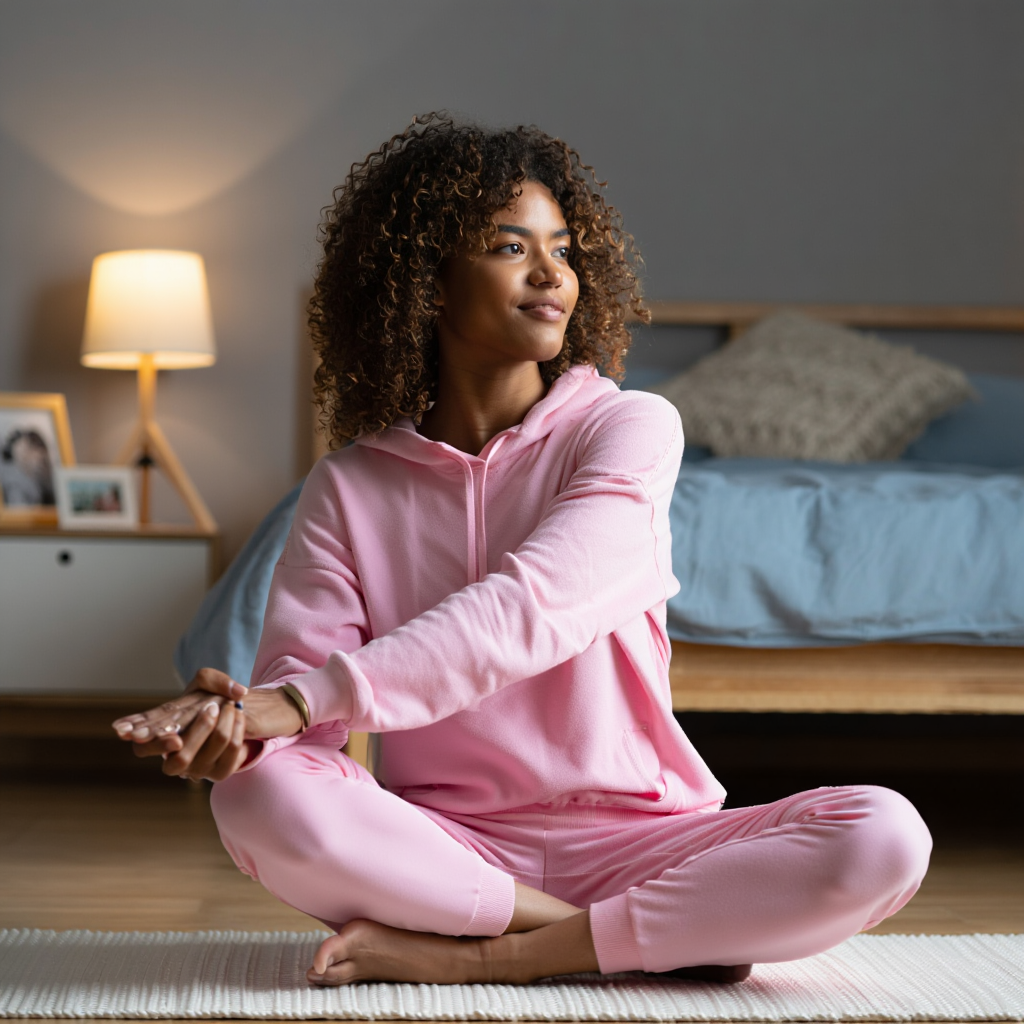
The Benefit of a Warm Bath or Shower
Taking a warm bath at least an hour before you go to sleep can be remarkably effective . Scientists have found that mimicking a nighttime drop in body temperature via a warm bath can trigger a similarly sleepy reaction . Your body will heat up from the water, then cool down quickly as the water evaporates, creating a sensation that makes you feel tired and relaxed .
Relaxation techniques: If you struggle with a racing mind, specific relaxation methods can be particularly helpful:
- Deep breathing exercises can help release physical and mental tension by turning focus toward your body and mindfully relaxing .
- Progressive muscle relaxation involves systematically tensing and then relaxing different muscle groups throughout your body .
- Mindfulness meditation teaches people to accept their thoughts and manage emotions, enabling sleep onset rather than stressing about not falling asleep .
Simple Do’s and Don’ts for Better Sleep Quality
Sometimes, what we do during the day affects our sleep more than what we do right before bed. Here’s a quick reference guide to round out your sleep hygiene practices:
Table: Daily Do’s and Don’ts for Better Sleep
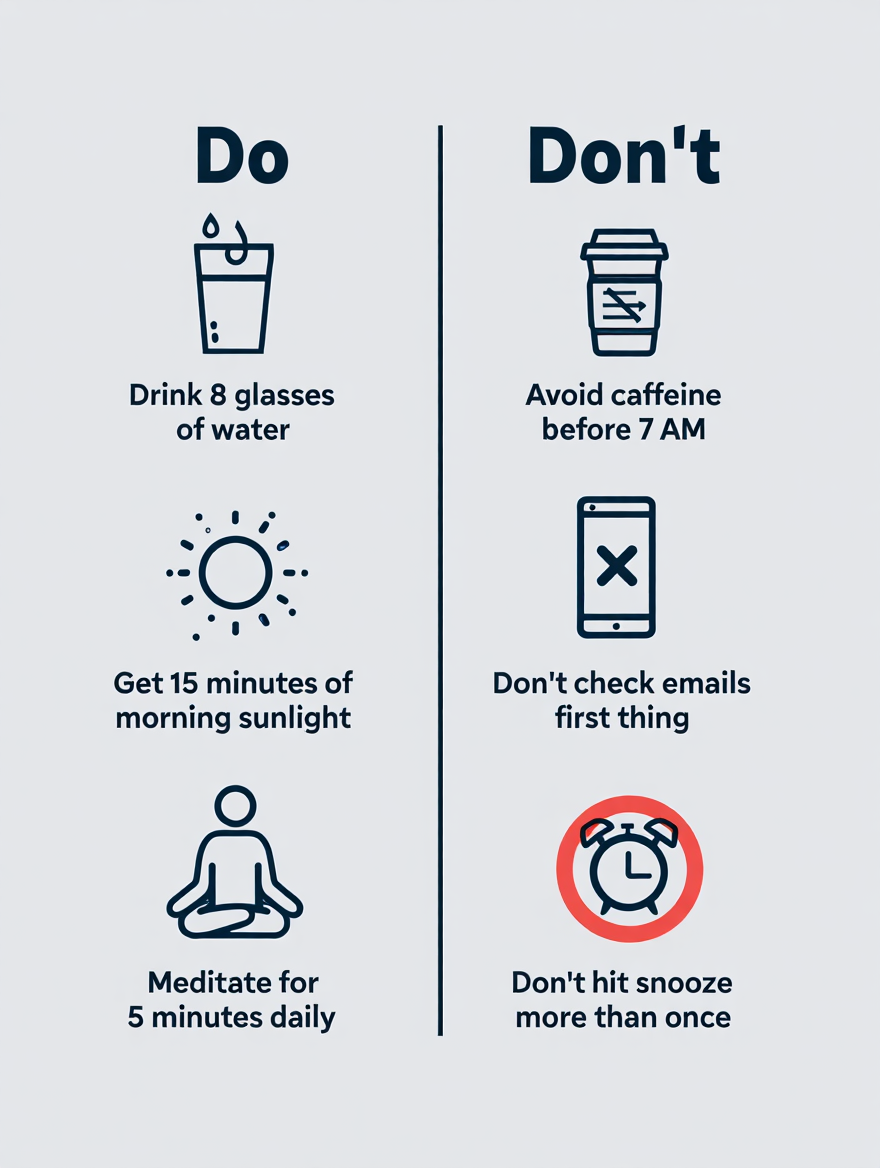
| Do’s | Don’ts |
|---|---|
| Hydrate earlier in the day | Consume heavy meals or large amounts of liquids within 2-3 hours of bedtime |
| Use calming scents like lavender | Have caffeine at least 8 hours before bed |
| Get regular morning or afternoon exercise | Engage in intense exercise close to bedtime |
| Seek natural light exposure during the day | Consume alcohol too close to bedtime |
| Keep naps short (20 minutes) and early in the day | Use nicotine, which is a stimulant |
Conclusion
Creating effective nighttime rituals for better sleep isn’t about perfection—it’s about consistency. The cumulative effect of small, regular practices holds the real power to transform your sleep quality. Remember that your relaxing bedtime routine should be personalized to what you find genuinely calming and sustainable.
If the idea of implementing all these changes feels overwhelming, remember this: you don’t need to revolutionize your habits overnight. The most effective approach is to start small and build gradually.
Call to Action: Tonight, choose just one ritual from this guide to implement. It might be charging your phone outside the bedroom, reading a book instead of watching television, or simply adjusting your thermostat to a cooler temperature. Once that single change becomes habit, add another. Sweet dreams!
Want to continue your journey to better wellbeing? Read more about the benefits of meditation for stress reduction in our comprehensive wellness guide.

